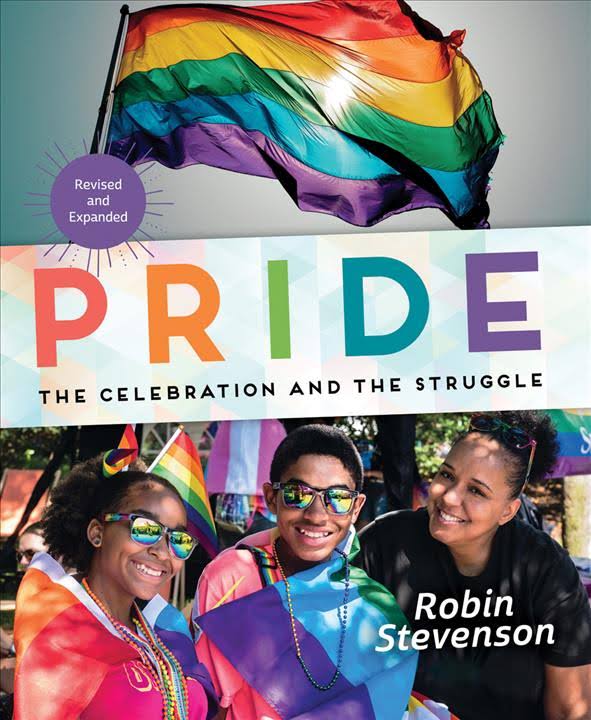How Pride Day Began with a Riot.
In the 1960s, there weren’t many public places where LGBT people could gather. New York, which had one of the largest gay populations in North America, actually had a law that made it illegal for restaurants and bars to serve them. It was illegal for a man to dance with another man-or to wear clothing intended for the opposite sex! A woman could be arrested if she was wearing fewer than three pieces of “feminine clothing,” and a man could be jailed for wearing a dress. Police regularly raided and shut down gay bars, arresting staff and customers.
One popular gay bar in New York was called the Stonewall Inn. It was on Christopher Street in Greenwich Village, and it was owned by the Mafia. The manager, known as Fat Tony, bribed the police with monthly payments so that they would turn a blind eye. It wasn’t a fancy place-in fact, it didn’t even have running water-but it was one of very few places where LGBT people could dance, chat, listen to music and be themselves.
Police raids weren’t unusual at the Stonewall Inn, even with Fat Tony’s bribes. Usually a few arrests were made. The bar shut down and reopened for business a few hours later. But on the evening of June 28, 1969, something was different. When the police arrested customers and began taking them to the paddy wagon, the crowd began to fight back. As word of the demonstration spread throughout the city, the customers of the Stonewall Inn were soon joined by others from the gay, lesbian and transgender community. A crowd began to gather outside, shouting “Gay power” and throwing coins, bottles and bricks from a nearby construction site. It wasn’t long before the police lost control of the situation and had to barricade themselves inside the bar.
Riot officers were called in wearing helmets with visors and armed with nightsticks and tear gas, but the crowd refused to give up. The conflict between the police and the protesters lasted until the early hours of the morning, and riots broke out again the next night, and the next.
In many accounts of the Stonewall Riots, a transgender street kid called Sylvia Rivera is said to have thrown the first beer bottle at the police. But Sylvia Rivera’s story doesn’t begin or end with Stonewall. Sylvia was born as a boy, to Puerto Rican and Venezuelan parents, and raised in poverty by her grandmother. After conflicts related to her gender expression- she began wearing makeup in fourth grade- she left home to live on the streets at age ten. Poor, Latina, transgender and often homeless, Sylvia knew what it meant to be an outsider, and she spent
her life fighting to make the world a better place for the most marginalized people in the LGBT community.
Sylvia was a founding member of the Gay Liberation Front and the Gay Activists, but as the gay rights movement became more mainstream, transgender people and drag queens often found themselves sidelined. Many activists seemed to focus on fitting in to the world, rather than changing it. Not Sylvia. A true revolutionary, she never stopped speaking her mind and fighting for the rights of street youth and transgender people of color.
One of Sylvia Rivera’s closest friends was an African American transgender woman known as Marsha P. Johnson. Like Sylvia, Marsha had a difficult childhood, and she too found herself living on the streets at a young age. In fact, she and Sylvia met when they were both still in their teens. Marsha was six years older and often looked out for her younger friend. “Marsha would give the blouse off her back if you asked for it. She would give you her last dollar,” Sylvia once said. Throughout her life, Marsha always spoke out against injustice. She was strong willed and used to say that the P in her name stood for “Pay it no mind!”
Marsha was an important part of the community that fought back against the police during those nights of rioting at the Stonewall Inn. Shortly after that, she and Sylvia founded a group called STAR- Street Transvestite Action Revolutionaries- and they did everything from marching for change to helping create shelters for street kids.
Comprehension Questions
1. Who founded the organization STAR (Street Transvestite Action Revolutionaries)?
A. Sylvia Rivera
B. Marsha P. Johnson
C. Both A and B
A. Because he forgot to pay rent for the bar for the second time. If he paid, the police would forgive him.
B. Because during the 1960s, it was illegal in New York for restaurants and bars to serve LGBT people. If he paid, the police would turn a blind eye.
C. Because he didn't want the police to tell his mother where he was working. If he paid, the police would stay quiet.
Your Thoughts
Vocabulary
4. List any vocabulary words below.

